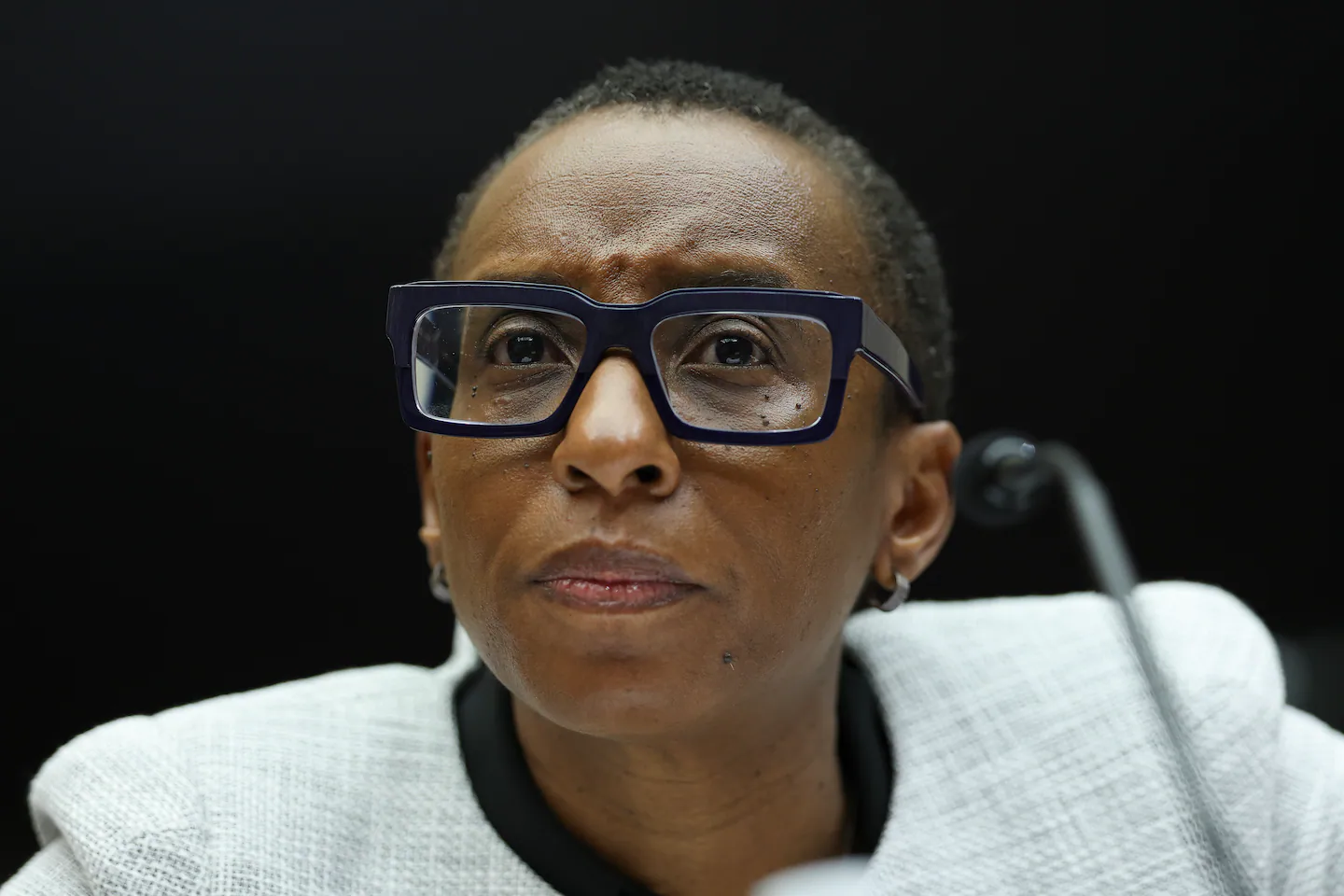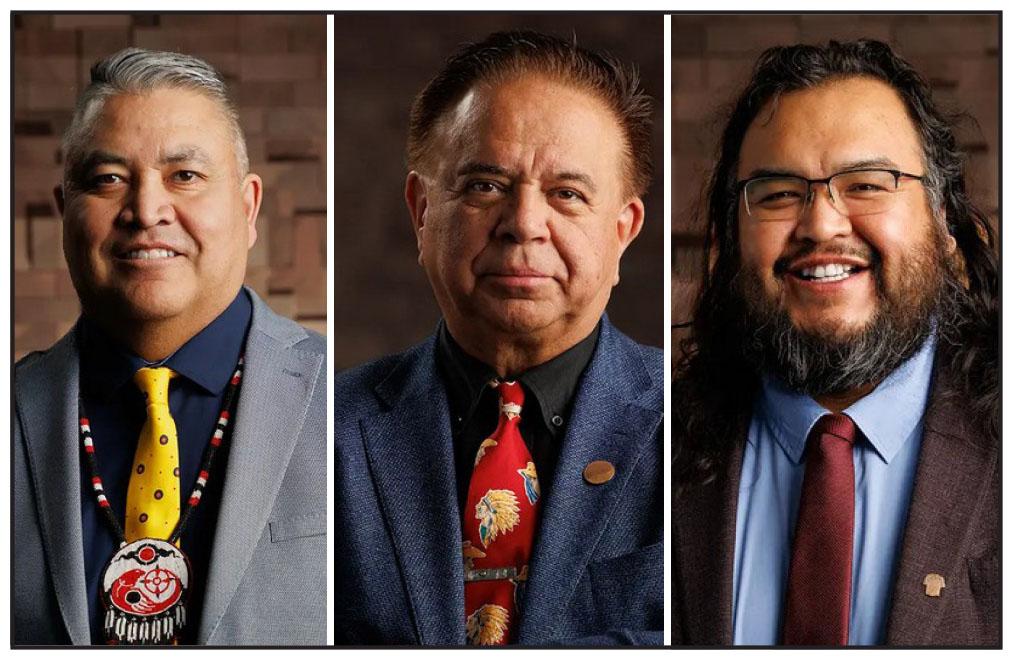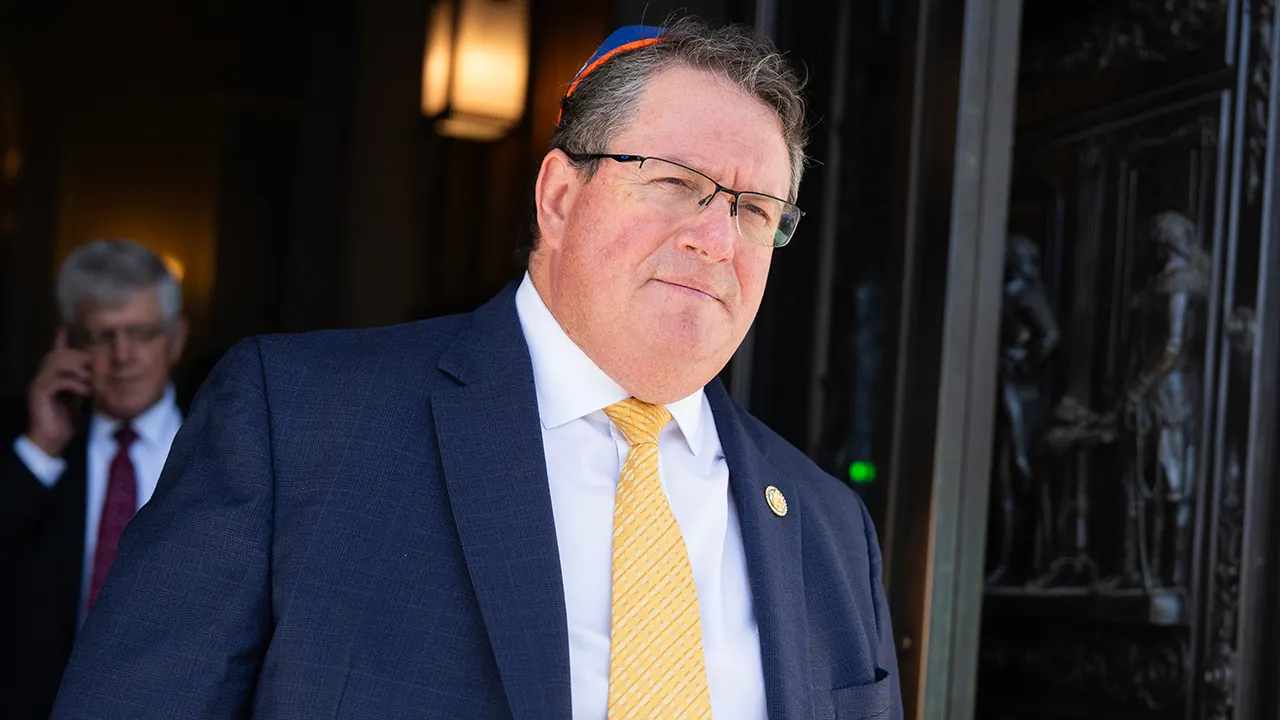Harvard president Claudine Gay points to pressure from donors — not Trump — as top threat to higher ed

“Universities have come to rely on donors more desperately than ever, particularly as public support has diminished, and donors have come to expect more than just gratitude,” Gay said in prepared remarks for a keynote address at the Netherlands Institute for Advanced Study in Amsterdam Sept. 3. “They want influence. They want control. They want, in the language of our times, a seat at the table.”
Gay, the shortest-tenured president in Harvard’s long history, left her job in 2024 following plagiarism allegations and furor over her testimony at a now-infamous congressional hearing on campus antisemitism.
Now, amid the Trump administration’s offensive against Harvard over antisemitism allegations — and speculation around a $500 million settlement between the two — Gay’s speech is also notable for what it doesn’t say, or rather, for who it doesn’t mention.
She didn’t namecheck President Donald Trump or current Harvard President Alan Garber. Nor did she mention Harvard’s mega-donors, some of whom paused donations and publicly called for Gay’s resignation following her 2023 congressional testimony.
Instead, she saved some pointed remarks for a Q&A in which she said Harvard’s posture “seems to be one of compliance,” as first reported by the Harvard Crimson, and confirmed by the Netherlands Institute for Advanced Study. “This is distressing, not only for those of us who are on campus and facing the consequences directly, but also for all of those in higher ed who look to Harvard for leadership and guidance.”
Regarding the possible settlement, she said “the number of $500 million is arbitrary and it will solve nothing,” adding that “there is no justification.”
Archon Fung, a professor at Harvard Kennedy School and director of its center for democratic governance and innovation, said that “many people on campus feel hesitancy to be critical of the university’s actions at this point,” so it was “fantastic” to see Gay “speaking out and using her public voice.”
It was a rare public rebuke from Gay, who’s “not a headline-seeker,” said Steven Levitsky, a Harvard professor of government.
“But she has been really badly treated,” he added. “Good God — the woman is not even remotely antisemitic, and yet she was attacked relentlessly and few defended her, so I’m really glad she’s speaking up. More people should, if we want to maintain a free society.“
In her resignation letter, Gay, Harvard’s first Black president, said it was “frightening to be subjected to personal attacks and threats fueled by racial animus.” A professor of government and African and African American studies, she soon warned that attacks on her were just part of “a broader war to unravel public faith in pillars of American society.”
Gay’s speech in Amsterdam came a week before the assassination of right-wing activist Charlie Kirk at Utah Valley University. That killing has reignited a firestorm over free speech on college campuses — and now television airwaves with the suspension of Jimmy Kimmel.
The battle over free expression on campuses started at Harvard and other universities in the immediate aftermath of the Hamas attacks on Israel Oct. 7, 2023, when donors began to criticize university presidents over their handling of pro-Palestinian protests on campuses, threatening to withdraw funding if they didn’t change course.
Since then, higher education leaders have had to navigate a difficult path, simultaneously protecting free speech rights under the First Amendment, while denouncing antisemitism and discrimination of any kind — and being careful not to confuse the two. They must do all of this under the increasingly public glare not only of the Trump administration, but also of the MAGA supporters scouring the internet for any opportunity to find the next high-profile personality to turn into a public example.
For months, the Trump administration has been waging a pressure campaign against Harvard, and higher education more broadly, with billions of dollars in federal funding in the balance. But in her speech, Gay suggested the pressure campaign by private donors on universities is just as consequential — and directly related to the federal one.
“Donors have evolved from stakeholders to shareholders” and ”universities, perhaps unwittingly, have been the architects of their own vulnerability,“ she said.
David Callahan, founder and editor in chief of Inside Philanthropy, said Gay’s message tracks with trends he’s seen in recent years. “Philanthropy is one way in which billionaires exert influence over society and convert their wealth into power,” he said. And while it’s not a new phenomenon, universities have become more dependent on “very large gifts from very wealthy people,” as smaller gifts from alumni have gone down. That money supports everything from everyday operating costs to large-scale future ambitions, but “it can also be a downside if you have these big donors who are pressuring you because you’re out of sync with their agenda.”
Gay traced the evolution of donor relations from the era of Louis Bamberger, the department store magnate who along with his sister, Caroline Fuld, helped fund what would become the Institute for Advanced Study at Princeton University. Their founding gift of $5 million came with almost no strings attached, she said, recounting what Bamberger said when university officials asked what the siblings wanted in return: “I don’t care what you do, just do it right.”
But over the decades, university benefactors have become university partners and advisers, and “gifts have become tickets to ongoing attention from leadership,” Gay said, noting that as dean of the faculty of arts and sciences at Harvard and later president, she personally witnessed this dynamic.
“We encouraged donors to think of themselves as stakeholders,” she said, adding that when some of those donors began to see themselves as shareholders, university leaders were disinclined to push back. “The distinction matters enormously: stakeholders have interests; shareholders have voting rights.”
She also said that many decisions are “shaped by conversations that never officially happened,” through informal channels that are “more powerful than any gift agreement . . . because they operate at the level of institutional culture rather than contractual obligation.”
Gay went on to describe the four ways she sees donors as exerting their influence: through the public ultimatum, in which donors publicly threaten to withdraw support unless universities fall in line with their wishes; the quiet veto, featuring a “particularly insidious” donor pressure where administrators simply “imagine opposition and act accordingly”; the strategic hire, where, again, university leaders create positions or programs that they know align with donor priorities; and the reputational shield, in which universities protect donors from negative attention.
“Among the most egregious examples,” she said, “are the well-documented ties at Harvard and MIT with Jeffrey Epstein.”
Gay ended the address by outlining a path forward for universities, including several structural reforms along with a simple piece of advice for leaders who are offered gifts with strings attached: Just say no.
“Saying ‘no’ requires difficult choices, sometimes in the worst of circumstances,” she said. “But the capacity to say no is what sustains independence.”
“This is a great piece of advice,” Callahan said.



